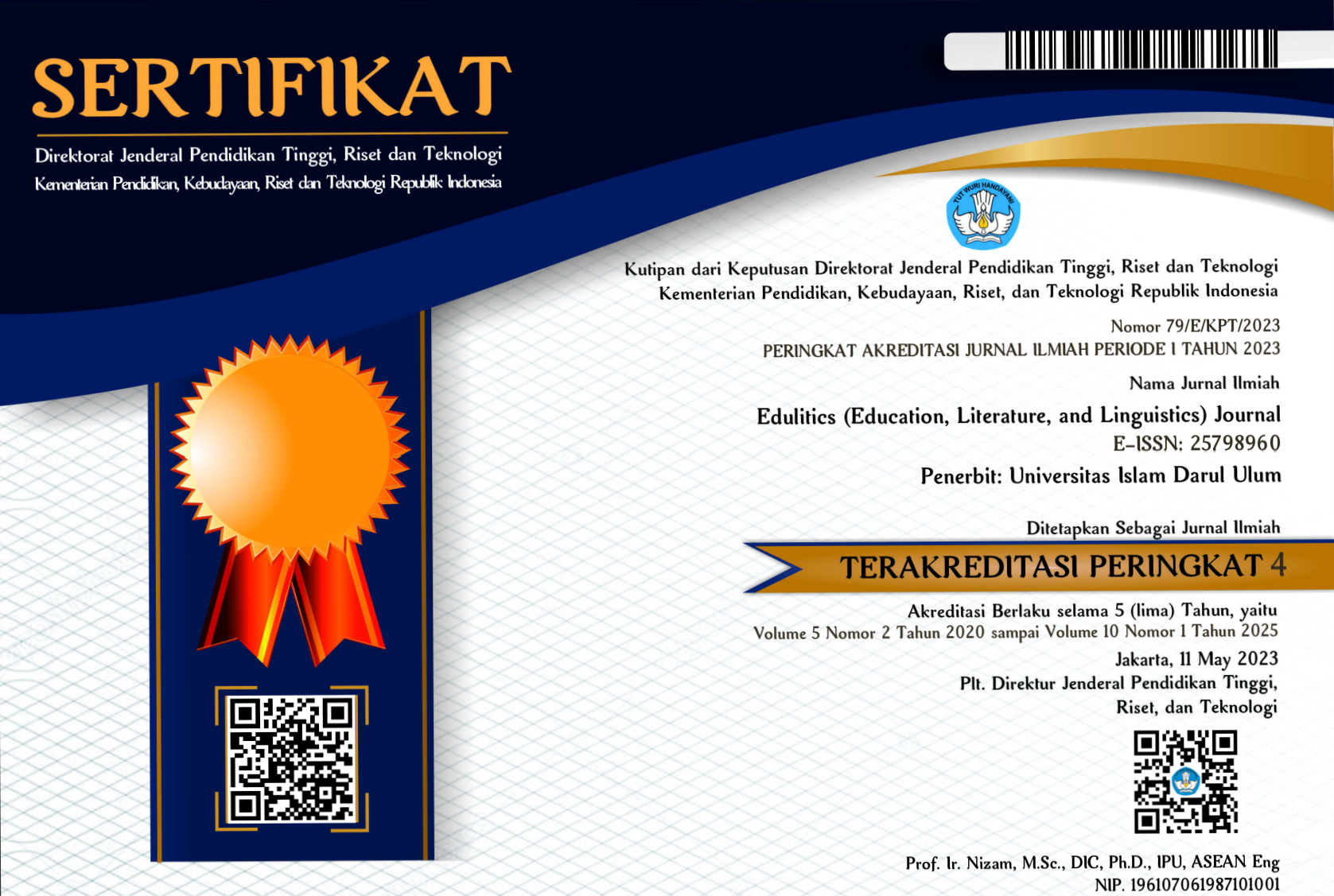Social Criticism of Women Characters in Kumpulan Cerita Kitab Kawin by Laksmi Pamuntjak: The Study of Feminist Literature Criticism
Abstract
Feminism is a series of organized movements to achieve women's human rights, with an ideology of social transformation that aims to create a world for women. The purpose of this study is to describe the forms of infidelity carried out by female characters in “Kumpulan Cerita Kitab Kawin” by Laksmi Pamuntjak, infidelity activities carried out by female characters are carried out for revenge or to prove that not only men can commit infidelity because women can too. The next goal is to describe the forms of gender equality actions taken by female figures to get justice such as getting their rights or to equalize degrees with men. The data collection technique in this study used two techniques, namely the reading technique which was carried out by paying attention to the things observed about the forms of infidelity and the forms of gender equality in “Kumpulan Cerita Kitab Kawin” by Laksmi Pamuntjak. Furthermore, the recording technique is done by noting all the important things related to the topics discussed. The data analysis technique used was descriptive qualitative analysis technique, by analyzing, describing the data that had been collected in the form of words, pictures. The results of the study show that the social problems that exist in “Kumpulan Cerita Kitab Kawin” by Laksmi Pamuntjak, in the forms of infidelity committed by female characters are divided into two, namely direct infidelity, infidelity carried out frankly known to male characters. The second is an indirect affair, an affair carried out secretly without the knowledge of the male character. Furthermore, in the forms of gender equality actions carried out by women leaders are carried out to obtain justice and rights for women.
Downloads
Authors retain copyright and grant the journal the right of first publication with the work simultaneously licensed under a Creative Commons Attribution-ShareAlike 4.0 International License that allows others to share the work with an acknowledgment of the work's authorship and initial publication in this journal.
Authors are able to enter into separate, additional contractual arrangements for the non-exclusive distribution of the journal's published version of the work (e.g., post it to an institutional repository or publish it in a book), with an acknowledgment of its initial publication in this journal.
Authors are permitted and encouraged to post their work online (e.g., in institutional repositories or on their website) before and during the submission process, as it can lead to productive exchanges and earlier and greater citation of published work.






_(1).png)


